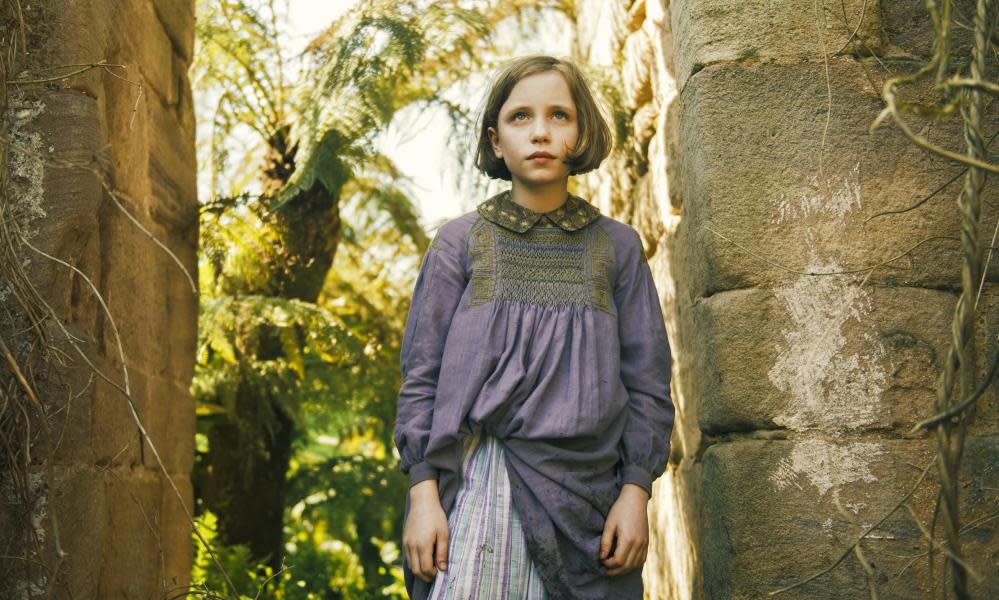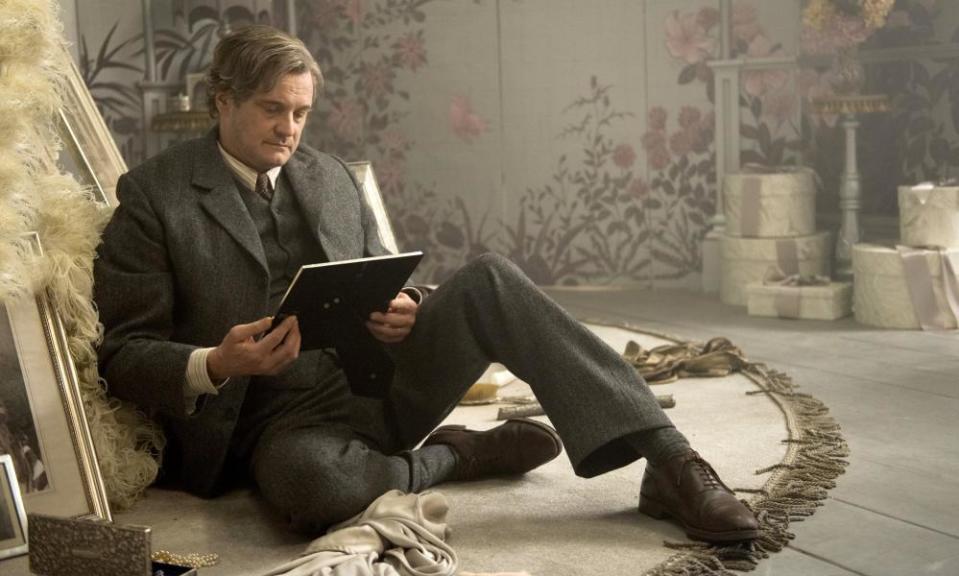The Secret Garden review – classic kids' tale gets lost in the undergrowth

In these times of trial, no one could be blamed for a comfort-food yearning, a return to the Sunday teatime world of period drama reassurance featuring blue-chip character actors and national-treasure A-listers in costumes and wigs. This new version of Frances Hodgson Burnett’s 1911 children’s classic The Secret Garden is handsomely produced and earnestly acted, especially by its child star. But it is a Mr Creosote menu of bland nursery food: a giant exercise in family-friendly nostalgia on which no expense has been spared or CGI pixel unused.
The Secret Garden – a kind of mawkish and decaffeinated version of Wilde’s The Selfish Giant – is about Mary, a lonely little girl who has to return to the mother country from India when her parents die, and she is forced to stay with her scary widower Uncle Archibald in his remote Yorkshire mansion.
But Mary discovers that there is on his estate a marvellous secret walled garden, which Uncle Archibald has locked up ever since his wife died there. Mary scampishly finds her way in and chivvies her uncle’s neurotic disabled son Colin (Mary’s cousin, in fact) to come with her into this garden along with her new friend, the maidservant’s 12-year-old brother, Dickon. Mary uses the secret garden’s miraculous Edenic powers to restore the health of Colin, who had quite wrongly been encouraged to think of himself as bedridden – and the garden promises to be a restorative force, curing the family’s wounds and salving painful memories.
And as for the details behind Mary’s aunt tragically dying in the secret garden … er, how exactly? Was it the same sort of gardening accident that carried off Spinal Tap’s first drummer John “Stumpy” Pepys? Well, the film is a tiny bit reticent about the exact moment-by-moment details, and, as with the Spinal Tap case, it is perhaps best left unsolved. We certainly aren’t treated to a ghastly flashback.
This movie updates the novel’s action from before the first world war to the tumult of Indian partition in 1947. Mary is played by 14-year-old Dixie Egerickx, and she does bring the right kind of ingenuous, tomboyish confidence and innocent boldness – the way I imagine Lucy Pevensie from the Narnia stories.

Mary comes to Yorkshire and on the train journey is confronted by the ferocious housekeeper Mrs Medlock, robustly played by Julie Walters, although without much dialogue for her to get her teeth into. Isis Davies plays the maid Martha, who is sympathetic but will stand for no nonsense; and Amir Wilson plays her brother Dickon. Finally there is the saturnine, miserable and hunchbacked Uncle Archibald, who has something of Heathcliff and Mr Rochester in his DNA – and he is played with a gulped growl by Colin Firth.
The mansion itself has been supersized – rather like Manderley in the new Netflix Rebecca – and this movie incidentally adds some comparable melodrama to the house’s destiny as well. It is pretty much the size of Blenheim Palace, surreally marooned in the middle of nowhere. As for the garden, well, the word garden doesn’t really cover it. It appears to be the size of Yorkshire itself or even the Amazon rainforest. This garden is a hothouse fantasy of digital wonderment, to which Mary is introduced by a borderline-irritating laptop-generated robin redbreast. Not quite Narnia, it still seems to be a vast cross between Kew and the legendary Leonardslee Gardens in Sussex, where Michael Powell fabricated South Asia in his Black Narcissus. (It could even be filmed in Leonardslee Gardens.) There is something interesting, arguably, in the Tardis-like experience of getting inside this garden, but it’s still trying very hard to impress.
The problem with the story is something that would probably be the same in any adaptation. The character of Colin is so selfish and unattractive that it is difficult to invest or believe in Mary’s attempts to rehabilitate him. He appears to function as a mini-me avatar for the far more interesting and dramatically flavoursome Uncle Archibald whose own woes Mary is having to redeem at one remove – but he is absent for much of the action. This garden is pretty but lifeless.
• The Secret Garden is in cinemas and on Sky.

 Yahoo News
Yahoo News 
